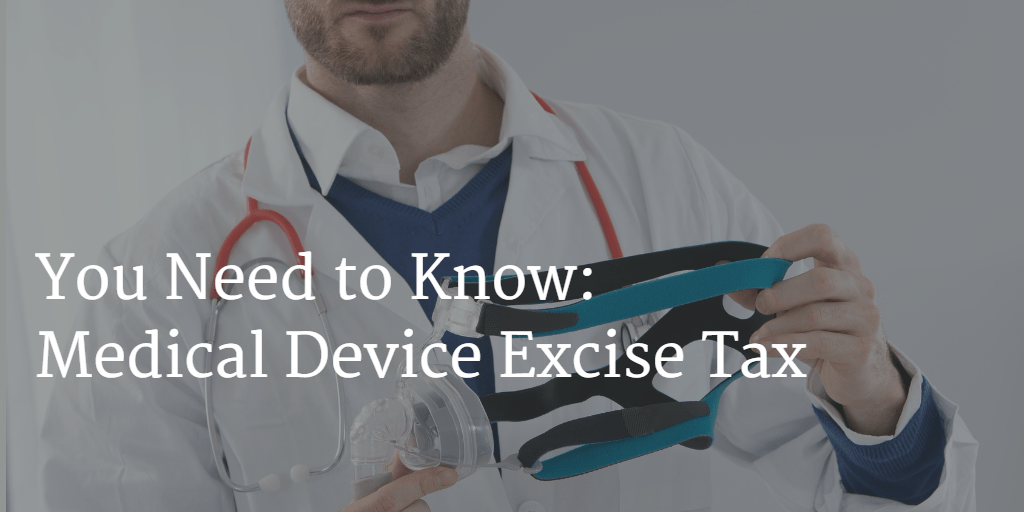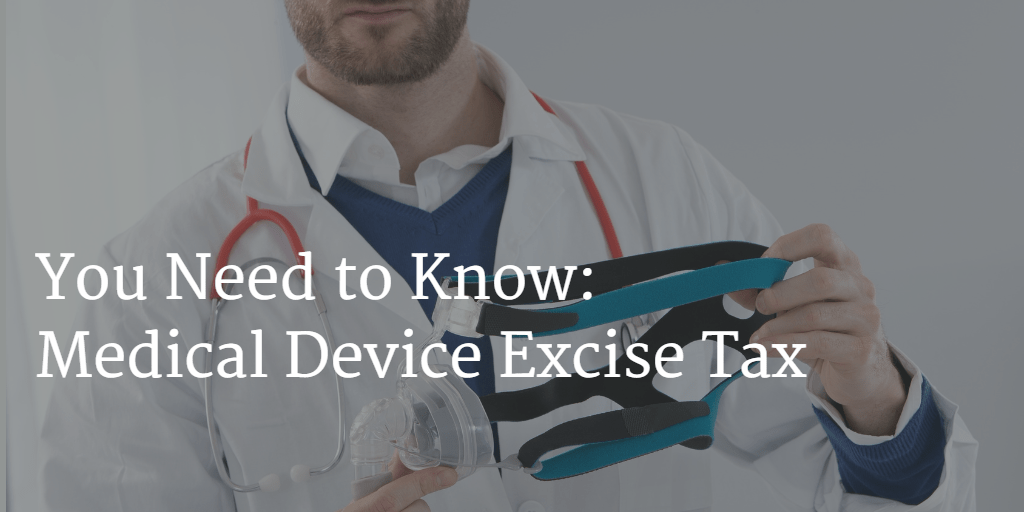
U.S. healthcare is a trillion dollar market with mountains of red tape. If you are a DME manufacturer or in the medical device industry, you need to be extra careful. See how recent changes to ObamaCare affect you with this guide on the Medical Device Excise Tax (MDET).
There is no doubt that DME manufacturers save lives every day by making pacemakers, artificial hips, and heart valves. But companies have been taxed in recent years by the ObamaCare Medical Device Excise Tax. This legislation has come under fire by many people who call for its repeal.
It is important to note that most U.S. DME manufacturers are small or medium-sized, and many have 50 employees or less. Some companies have dealt with the new tax by cutting costs and reducing staff. However, other companies have grown since the legislation was put into place.
The U.S. government has stated that Medicare and Medicaid pay out huge amounts of taxpayer dollars to the medical device industry and see overall larger profits under the Affordable Care Act. President Obama has said “This additional tax essentially comes back to them as new customers.”
Here is some important information to help you understand this legislation better:
So is this tax good for DME manufacturers?
The healthcare legislation is controversial. There are two main opinions about whether the tax is good for the medical device industry.
Anti-Medical Device Excise Tax:
The IRS has collected billions of dollars from DME manufacturers. Companies are taxed based on revenue, not profits, which they say can have a very negative impact on their bottom lines. Some have responded by cutting costs, decreasing staff and staff hours, and say that their ability to innovate is limited.
Pro-Medical Device Excise Tax:
The tax was created to help provide health insurance for Americans who cannot afford it. The legislation is said to increase DME sales and drive innovation. The tax is also less than 3%, which many people say does not have a large impact on the industry.
Are any DME manufacturers exempt from the tax?
No, all taxable manufacturers must pay it, no matter their size, revenue, profitability, or private or nonprofit status.
How often do DME manufacturers have to pay?
DME manufacturers must pay the tax every quarter.
Do DME providers have to pay?
Only B2B DME providers who also produce taxable medical devices have to pay.
What about consumers?
The tax does not charge consumers. It is up for debate whether they benefit from the tax or whether medical device prices will increase because of the added cost to DME manufacturers.
Is the Medical Device Excise Tax going to be repealed?
The House voted to repeal the tax on June 18 with the Protect Medical Innovation Act. Repeals to remove the legislation had passed before but failed to move the Senate and White House.
Are you a medical device manufacturer or DME provider affected by ObamaCare legislation? What do you think of the Medical Device Excise Tax?
Notes:
The ObamaCare Medical Device Excise Tax imposes a 2.3% tax on the sale price of certain medical devices by the device’s manufacturer or importer within the United States (Internal Revenue Code, Section 4191).
Manufacturers or importers of medical devices in the United States are taxable with some exemptions for eyeglasses, contact lenses, hearing aids, power wheelchairs, and select other devices. For a specific list, refer to Food and Drug Administration under section 510(j) of the Federal Food, Drug, and Cosmetic Act and 21 CFR part 807.

